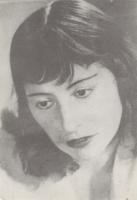
By Zoe West-Taylor
To those familiar with the work of Spanish essayist, philosopher, and author Miguel de Unamuno (1864–1936), it may come as some surprise that I chose to take a feminist approach to his writing in my master’s project. Unamuno, an early existentialist, forerunner of the Generation of ’98, and one of the most important Spanish writers of the 20th century, wrote widely on what he saw as fundamentally dichotomous forces within the individual, as well as the tensions between intellect and emotion, faith and reason, yet there remain few studies which examine his ideas about gender. Reading Unamuno’s work for the first time during the Christmas break after my first term at Oxford, I was struck by how modern some of his depictions of male and female selfhood seemed. Though he was far from a self-proclaimed feminist, I wondered: why hadn’t Unamuno’s work been studied through a feminist lens?
At this point in my academic career, a large part of my work had taken a gender-focused approach to literary texts. Feminist philosophy and criticism had informed my readings of authors ranging from the late Weimar novelist Irmgard Keun to the contemporary Moroccan-Catalan writer Najat El Hachmi. It seemed obvious to me that Unamuno’s work, and particularly his drama El otro (1926) and novel Nada menos que todo un hombre (1916), deserved a reconsideration in the context of feminist criticism. As I worked on my dissertation, under the brilliant supervision of Dr Laura Lonsdale, I found that in these two works, Unamuno reveals an insight into the psychological clashes that can arise between different parts of the self upon attempting to conform with strict gender roles. For both his male and female characters, aligning one’s public self with societal expectations, although necessary to ensure social inclusion, also requires a degree of repression of the authentic self. I found a particularly interesting example of this in the doubly conflicted character of Julia in Nada menos. Reading Julia’s character alongside theorists Sandra Bartky, Judith Butler, Sigrid Weigel and John Berger, I discovered that she experiences two painful schisms: one between her internal and external selves, and another between her own perspective and that of her internalised patriarchal voice. Though many Unamunian scholars had identified that Unamuno’s work posed the critical questions, ‘What is a human being?’ and ‘Who am I?’, my study also revealed that he raised the sociologically and existentially pertinent questions, ‘Who am I while acting in society?’, ‘How is this different from my interior self?’ and ‘How do men and women experience this differently?’. I was honoured to receive the 2023 Spanish MSt Dissertation Prize for my work.

At the same time, another course I took during my MSt introduced me to the work of Chilean writer María Luisa Bombal (1910-1980). Despite her limited number of publications, Bombal is still widely read across the globe, and remains a cornerstone of Chilean and Latin American literature. Meshing feminism, eroticism, and surrealism, her novels, short stories and poems depict heroines who craft imaginary worlds as an escape from unhappy romances and repressive patriarchal conditions, and were some of the first texts to incorporate elements of magic realism.
On first glance, the two modernists have little in common. When Unamuno died in 1936, Bombal’s writing was just taking off: the former, an early existentialist whose work is seldom read for its depiction of gender relations, the latter, a forerunner of magic realism who is overwhelmingly considered a feminist writer. Though neither identified with the feminist movement,1 the two literary icons, in their wildly different styles, both exhibited nuanced understandings of the pressures of the patriarchy on the female and male psyches.
Just as the lack of feminist scholarship on Unamuno inspired my approach to his work, the predominance of feminist approaches to Bombal’s fiction led me to consider her writing from a different perspective. The doctoral research I will begin later this year will recontextualise Bombal by situating her work in a far richer world of ideas, and in the transatlantic artistic circles in which she moved. Extending beyond her current classification as a female Latin American writer, I plan to read her as a modernist whose literary and philosophical influences were decidedly transnational, and I hope to reveal the important voice she contributed to the modernist upheaval in understanding temporality.
1 Bombal even claimed that, ‘No me inspiró para nada el feminismo porque nunca me importó’ (‘feminism didn't inspire me at all, because it never mattered to me’). (Obras completas, ed. Lucía Guerra-Cunningham, 1996, p.337)